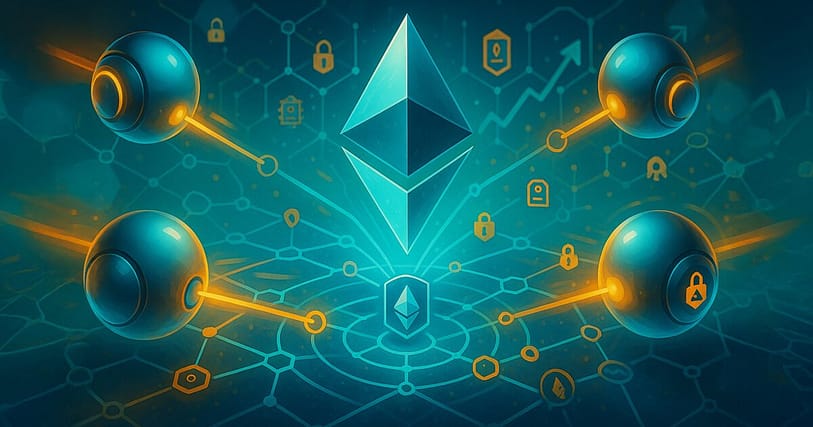Synthetic intelligence (AI) is evolving past chatbots and copilots, and the following frontier of this fast-developing business is a world of AI brokers.
These autonomous digital actors can browse the net, negotiate contracts, make funds, and collaborate with different machines.
The market supporting this shift is immense, with information from Statista projecting the worldwide AI sector to surpass $1 trillion by 2031. Notably, the report suggests {that a} vital market share can be devoted to agentic techniques able to unbiased decision-making.
But one query dominates the dialog: How will tens of millions of those autonomous brokers belief, confirm, and transact with one another?
Whereas technological corporations like Google are racing to construct centralized agent ecosystems, builders inside the crypto neighborhood argue that probably the most impartial and verifiable substrate for this rising machine financial system isn’t a company cloud—it’s Ethereum.
Why Ethereum issues for AI
Ethereum’s open ledger already secures greater than $550 billion in on-chain property and tens of millions of sensible contracts.
For builders like Binji, an Ethereum Foundation engineer, that makes it a pure basis for “trustware”—a public layer the place machines can anchor identification, reminiscence, and proof of motion.
In keeping with him:
“in case you have been an agent with no loyalty besides to your individual survival, you wouldn’t wish to guess your reminiscence and repute on one company or one authorities: you’d desire a ledger that nobody might quietly change behind your again. you’d need impartial floor. you’d need Ethereum.”
ERC-8004
Contemplating this, the community builders have been engaged on a technical framework to allow these AI brokers to thrive with no third-party intervention.
On Oct. 9, the Ethereum Foundation’s dAI team and Consensys unveiled ERC-8004, a brand new commonplace designed to allow AI brokers to find, authenticate, and cooperate immediately on-chain, with out centralized intermediaries.
At its core, ERC-8004 extends the Agent-to-Agent (A2A) protocol with three light-weight registries for Identification, Repute, and Validation.
Every agent receives a conveyable on-chain identification encoded as an ERC-721 token, permitting it to be considered, transferred, or managed through present Ethereum wallets. The registry file linked to that NFT describes the agent’s abilities, endpoints, and metadata, forming a standardized “passport” for machine actors.
The proposal allows brokers to ascertain belief autonomously with out centralized intermediaries, bridging the hole between AI techniques and blockchain infrastructure.
The framework additionally helps on-chain repute by integrating x402 payment proofs and suggestions information, permitting brokers to construct provable habits histories.
Primarily, ERC-8004 positions Ethereum because the potential coordination layer for a decentralized AI financial system. On this setting, AI agents, not people, will negotiate transactions, handle assets, and type DAOs.
Binji stressed that the know-how might gas the following increase in AI brokers, whereas concurrently boosting Ethereum’s core worth proposition of “belief with out intermediaries.”
He added:
“That is just the start of machines working on trustware. sensible contracts are how we’ll talk with ai, the immutable ledger is how they may talk with eachother, and ethereum is how we’ll construct this proper.”

